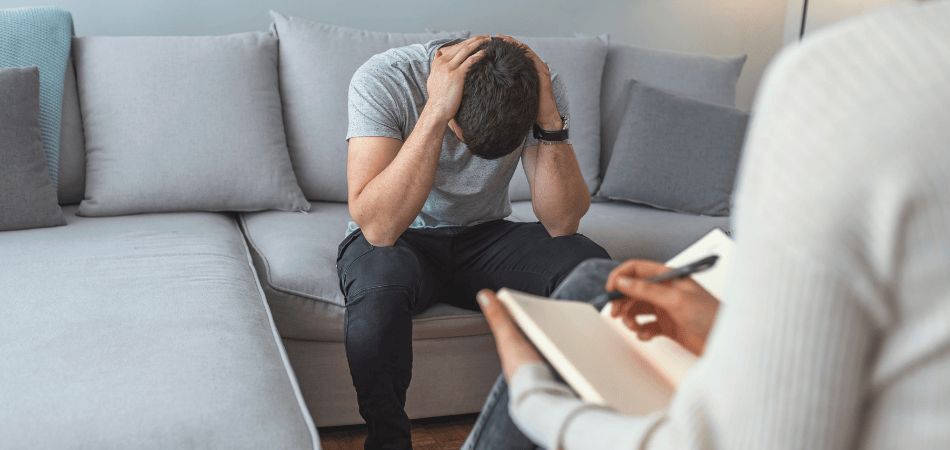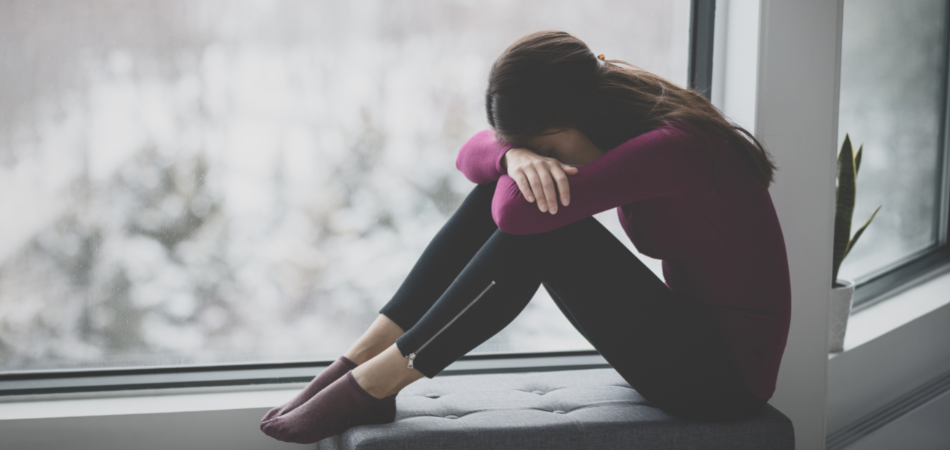Dual diagnosis: mental health and addiction
Mental health disorders and addiction are both serious issues that can have a profound impact on a person’s life. Dual diagnosis, also known as a co-occurring disorder, is when a person suffers from both a mental health disorder and an addiction simultaneously. Dual diagnosis is extremely difficult to manage because the two conditions often feed off of each other, making both conditions worse.
Thankfully, there is real light at the end of the tunnel, with rehab centres like Liberty House having vast experience in helping people with a dual diagnosis both overcome their addiction and learn new skills for managing co-occurring disorders.

- Page Content
- Why is dual diagnosis so common?
- Do I have a dual diagnosis?
- What are the most common dual-diagnosis disorders?
- What does effective dual diagnosis treatment involve?
- How to get help for dual diagnosis
- Frequently asked questions
Why is dual diagnosis so common?
UK studies have found that between 20 – 37% of those with a mental health disorder have a co-occurring addiction. There are a number of reasons why dual diagnosis is so prevalent, some of which include:
- People with mental illnesses can use addictive substances or engage in addictive behaviours to help cope with the symptoms of their co-occurring disorder
- Addiction can cause chemical changes in the brain that result in the onset of a co-occurring disorder
- Addiction and mental health disorders can be caused, triggered or exacerbated by stress or trauma
- Why is dual diagnosis so dangerous and difficult to manage?
- Dual diagnosis treatment is tough because of the mutually reinforcing nature of the two conditions. Someone with anxiety, for example, may try to cope by drinking or using drugs or by overindulging in addictive behaviours, which can then lead to addiction and make the anxiety worse.
Addiction not only amplifies mental illness, but it can also create new mental disorders. For instance, alcohol addiction can lead to relationship problems and breakups which can lead to deep depression. Isolated from loved ones, the individual may lean on drugs or alcohol even more to cope with the depression, creating a dangerous and difficult-to-manage spiral.
Do I have a dual diagnosis?
If you think that you or a loved one may be struggling with a dual diagnosis, it’s crucial to seek professional help as soon as possible. The team at Liberty House can assess your situation and put together a treatment plan that meets your unique needs. Here are some questions to ask yourself which may indicate you have a dual diagnosis and need co-occurring disorders treatment:
- Have I started to use substances or addictive behaviours because the symptoms of my mental health disorder are too difficult to cope with?
- Have I been taking mental health medication more frequently or in higher doses than prescribed?
- Have I become isolated from my normal support network as a result of substance use or my engagement with addictive behaviours?
- Do I continue to use substances or engage in addictive behaviours even though they are making the symptoms of my mental health condition worse?
If you answered yes to any of the above questions, it’s important to reach out for help. Liberty House can provide you with the support and resources you need to overcome addiction and start managing your mental health disorder.
What are the most common dual-diagnosis disorders?
There are many different combinations of mental health disorders and addiction that can occur, but some of the most common include:
ADHD and addiction – People with ADHD sometimes experiment with different substances to attempt to improve their focus. Although certain stimulants may offer temporary benefits, their abuse carries a high risk of addiction.
- Anxiety and addiction – People suffering from anxiety and addiction may use drugs or alcohol to try to calm their nerves and cope with distressing situations. While this may work temporarily, one of the major psychological symptoms of addiction is anxiety, so using drugs or alcohol to self-medicate is never effective long-term.
- Bipolar disorder and addiction – Because bipolar disorder encompasses periods of both elation and sadness, people with this condition may turn to substances or addictive behaviours to celebrate or to console themselves. However, this type of self-medication can quickly lead to addiction as well as further episodes of mania and depression.
- Co-dependency and addiction – Co-dependency is a condition characterised by an unhealthy reliance on another person. Addiction can result from co-dependency if that person is somehow lost resulting in the individual drinking, using drugs or engaging in compulsive behaviours to cope with the loss.
- Depression and addiction – Depression is one of the most common mental disorders and it often leads people to substance abuse in an attempt to cope. Unfortunately, drugs and alcohol only serve to make depression worse, creating a vicious cycle that is difficult to break free from.
- OCD and addiction – obsessive-compulsive disorder can be extremely debilitating and for some people with OCD, substance use, or addictive behaviours, they can actually become obsessive in themselves. This can make it very difficult to manage both disorders simultaneously.
- PTSD and addiction – Trauma is a common trigger for both mental health disorders and addiction. People who have experienced traumatic events may turn to drugs or alcohol as a way of numbing the pain and dealing with symptoms like anxiety, depression and insomnia. However, the usual outcome is that the original symptoms of PTSD can become exacerbated, with the person putting themselves at risk of becoming addicted.
What does effective dual diagnosis treatment involve?
Due to the prevalence of co-occurring mental health and addiction disorders, Liberty House has developed our recovery programmes to provide the best possible outcomes for people with a dual diagnosis. While we do not treat the co-occurring mental health condition itself, many of our holistic addiction therapies will help enormously with the symptoms of the condition.
While your mental health condition needs to be stable for you to undergo dual diagnosis rehab treatment, we will make sure you are supported in every way possible and take your individual needs into account. This includes ensuring that you receive any medication that you have been prescribed for your co-occurring disorder.
Here are some of the therapies we offer and how they can help you with dual diagnosis:
- Cognitive behavioural therapy (CBT): CBT is a talking therapy that can be used to change the way you think and behave. It can be extremely helpful in treating both addiction and mental illness as it helps you to identify and break negative thought patterns and behaviours such as those that can result from depression.
- Group therapy: Group therapy is a key part of our treatment as it offers you a chance to share your experiences with others who are going through similar things and who may have the same dual diagnosis as you. This can be extremely helpful in making you feel less alone which is crucial as both mental health and addiction disorders thrive when they are able to isolate a person.
- Addiction counselling: Addiction counselling allows you to explore your addiction in a safe and supportive environment. This can be very helpful in understanding why you turned to substances or addictive behaviours in the first place and the connection between mental health and addictions.
- Family therapy: Addiction and mental health disorders can put a huge strain on family relationships. Family therapy is a chance for you to work through any issues you have with your family members in a safe and supportive environment. It can also help your family to understand the impact that co-occurring mental health and addictions are having and how they can support you in your recovery.
- Art therapy: Art therapy is a creative way of exploring your emotions and experiences. It can be helpful in treating both addiction and mental illnesses like anxiety because it gives you the opportunity to express yourself in a way that may be difficult if you get anxious when speaking to people. Art therapy can also provide a way to calm and focus your mind if you are struggling with the negative thoughts or feelings which are symptomatic of many mental health disorders.
How to get help for dual diagnosis
At Liberty House, we have huge experience in helping people with dual diagnosis break free from addiction and lead fulfilling lives. Our team of expert addiction counsellors, therapists, and medical professionals will be on hand 24/7 to offer you the help and support that you need. Get in touch with us today to find out more about how our recovery programmes can help you.




